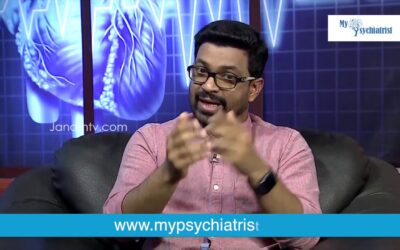Children and adults with Autism spectrum disorders have problems with social communication and social interactions. This includes issues with responses to social cues, verbal and non-verbal communicative behaviours including body language and facial expressions used for social interaction, and in skills required to form, maintain, and understand relationships. Young children with this disorder show difficulties in engaging with others and sharing thoughts and feelings. They may show reduced eye contact and show inappropriate gestures, facial expressions, and body language. One of the earliest signs of this disorder is that the child does not point to things or look to where another person is pointing or gazing. They tend to not share their interests with others. In adults this may show up as difficulties in responding to social cues, e.g., joining in group conversations. Spontaneous bodily expressions that usually accompany speech may not be seen or may be inappropriate.
Many affected persons have difficulties in speech and language. These include delay in speech development, poor understanding of spoken language, echoing of other’s speech, use of highly literary language etc. Sometimes it may be seen that conversations are often one-sided, and only in the form of requests or replies and there is no commenting or sharing of feelings.
Social interests and relationships are reduced or inappropriate. This includes lack of sharing and imaginary social games, insistence on playing by rigid rules and difficulty in forming friends. There is a preference for solitary games and activities. Sometimes the relationships formed may be with much younger or older persons. In adults, expected situational changes in behaviour such as formal and casual attitudes may be inappropriate. Complex uses of language and social context such as sarcasm, white lies etc are difficult for such individuals to understand.
They also show restricted and repetitive patterns of behaviour, interests, or activities. Repetitive behaviours include hand flapping, spinning, finger flicking etc., along with repetitive use of objects such as spinning coins and lining up toys. Instant and delayed echoing of heard words and repeated use of same word incessantly may also be seen. They may show excessive adherence to daily routines which they refuse to change or become very upset on changing. Extreme responses may be seen to specific sounds or textures, and may manifest as fascination with specific objects such as lights, refusal to eat certain foods, repeated smelling, and touching objects etc. They may also show indifference to pain, heat, or cold.
In addition to the abovesaid symptoms, they may have intellectual disability, behavioural problems such as aggression, self-injury, and neurological problems such as clumsiness, difficulties in walking, and walking on tiptoe.
Symptoms are usually noticed in the second or third year of life when delay in language development, difficulties in social interactions and abnormalities in playing patterns are noticed.
One out of every hundred people are reported to have a diagnosis of ASD. Many risk factors have been found for the development of ASD. These include higher age of parents at the time of conception, low birth weight, and exposure to toxins during gestation. Certain types of ASD have been found to have a genetic basis. Autism has also shown to be heritable to variable extents.
In order to arrive at a diagnosis of ASD, in addition to observing your child, your doctor may need information from multiple sources including you and other caregivers such as teachers. Additional assessments by a psychologist may be required. Investigations may be done to rule out neurological conditions if required.
The management of ASD includes early intervention and training to improve the skills in deficit areas. This includes speech and language therapy and social skills training. Rarely, mediation may be required to control behavioural problems such as aggression.
The acquisition of skills in ASD is a lifelong process and primary caregivers (parents and siblings) often have a significant role to play in this process. Over time, many of them learn to adapt to social situations and function adequately in many areas.
Janam TV Interview part 3
https://www.youtube.com/embed/MQ_ccsXwkbc All you want to know about Mental Illness



0 Comments